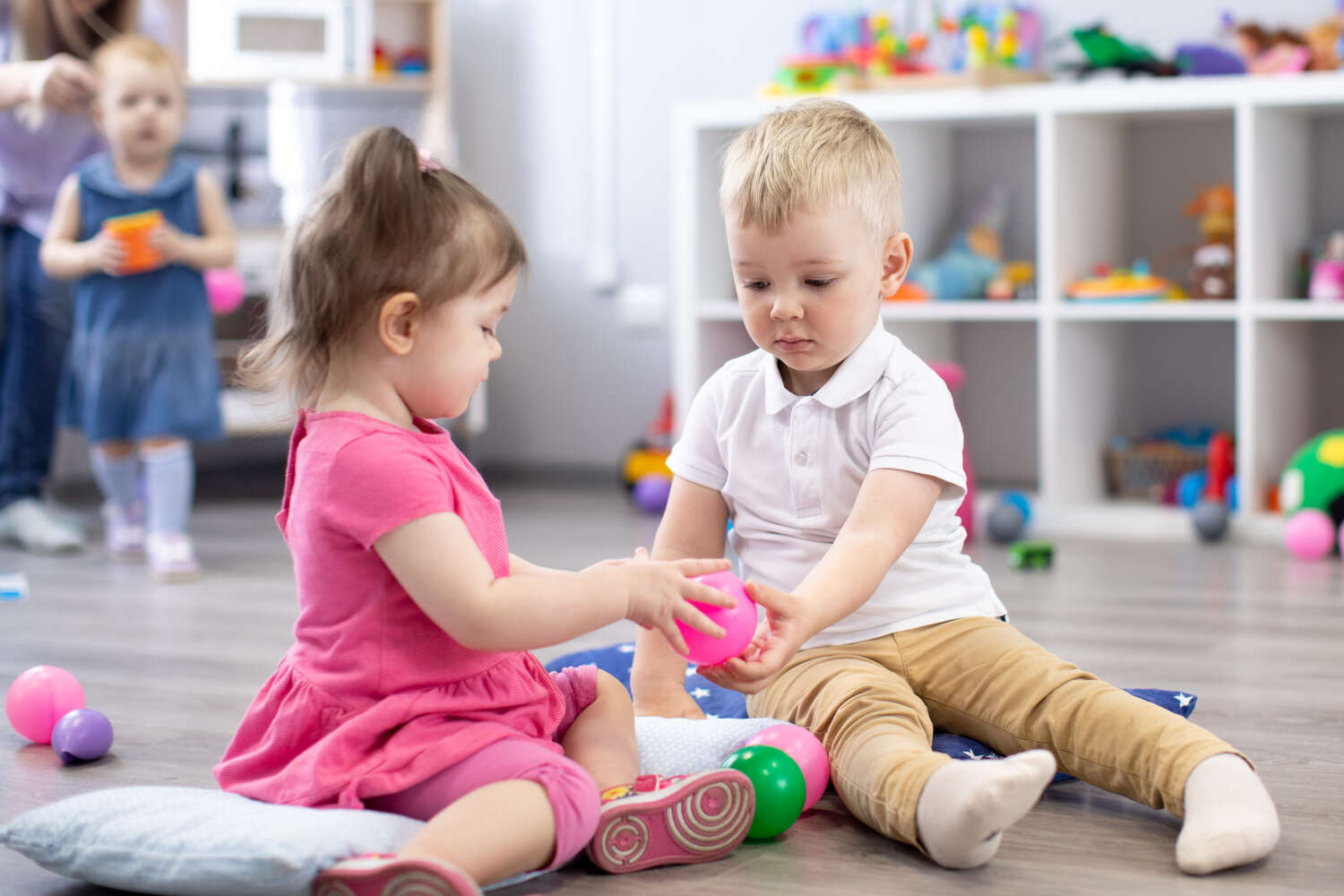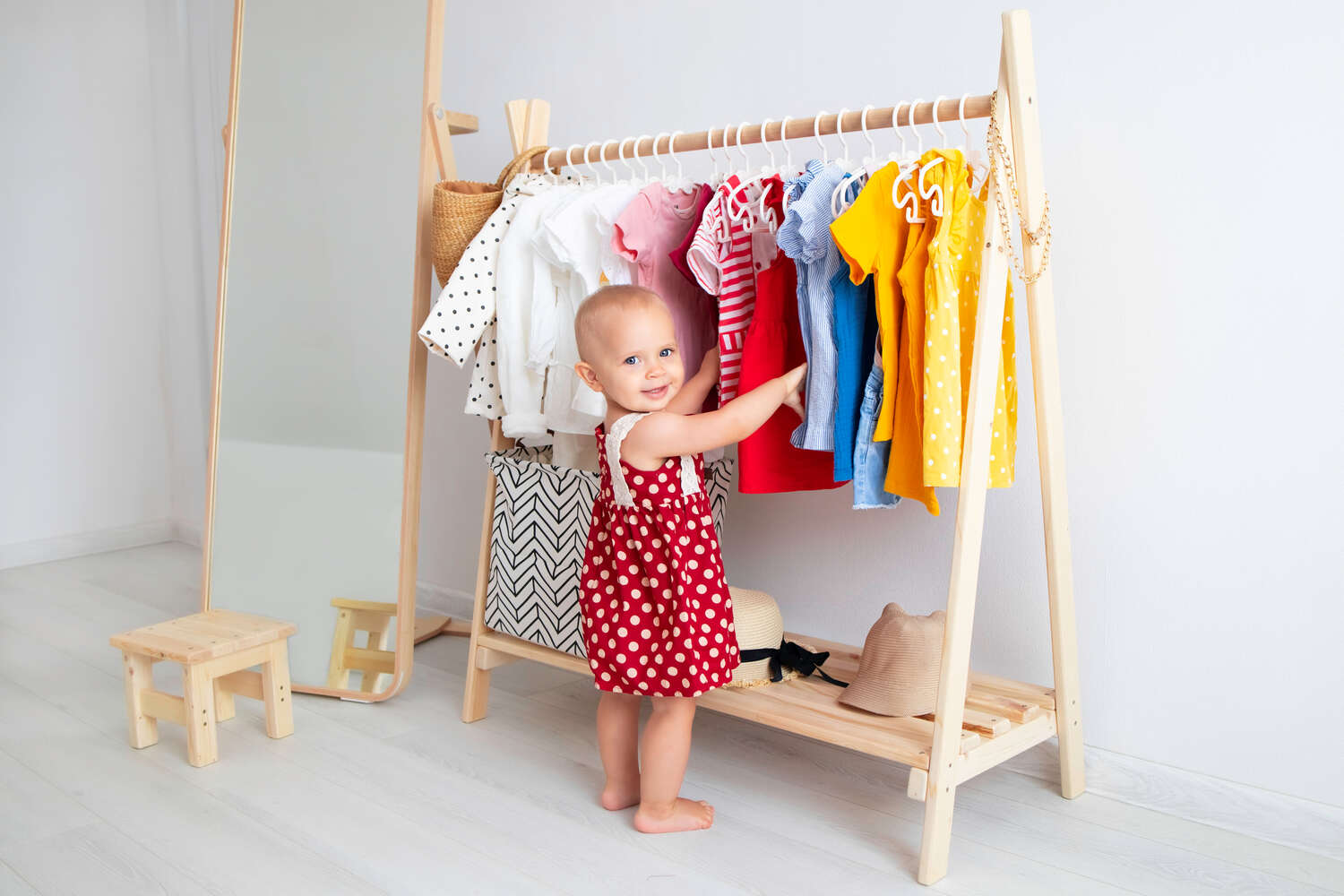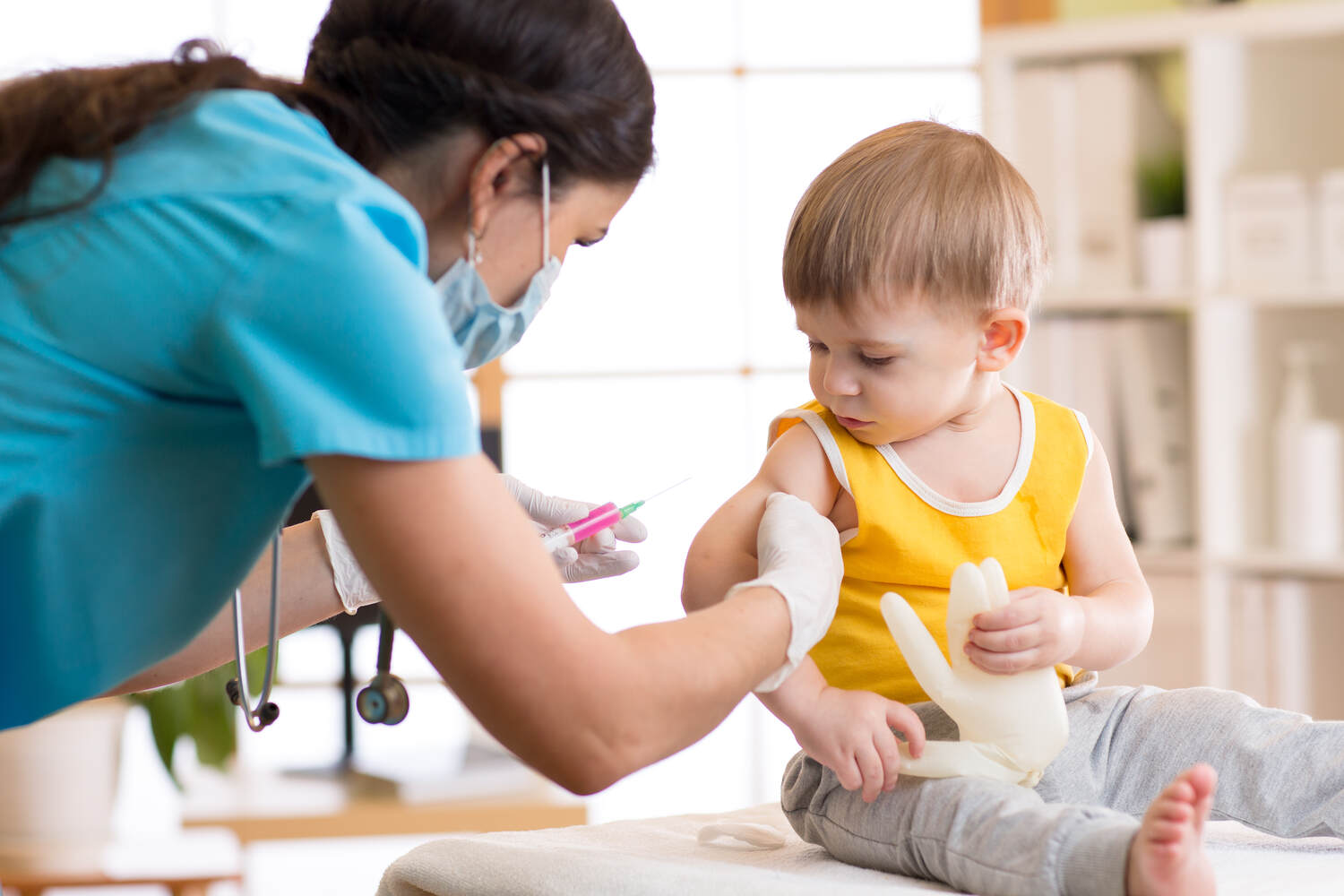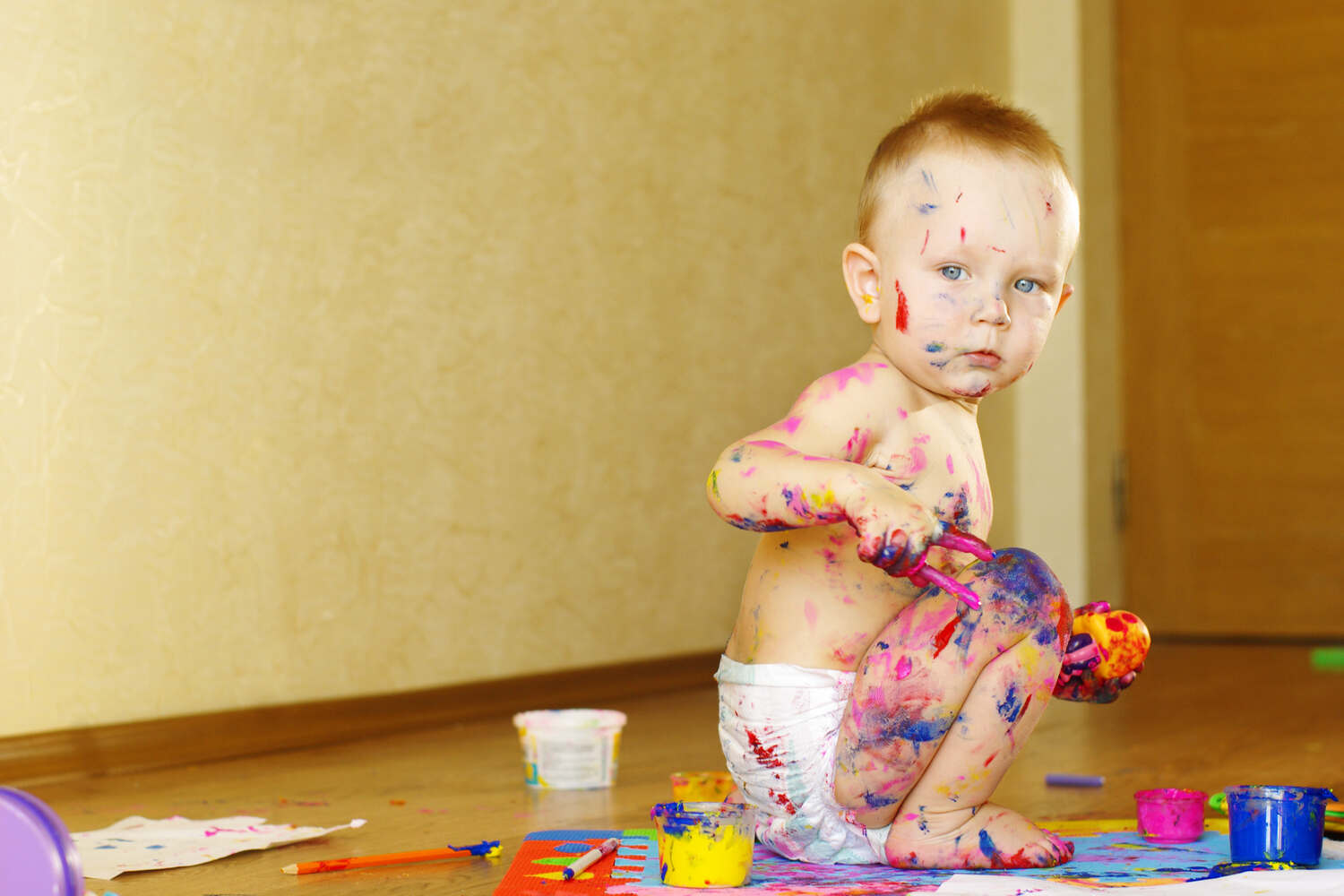
Your toddler is more than 1.5 years old and is becoming very independent with their thoughts and actions. In the coming months, they will cross many toddler milestones. In their current stage, their exposure plays a major role in how soon or late they attain some toddler milestones.
While some parents may do thorough research and immerse themselves in helping their toddlers achieve their toddler milestones on time, some may not know what to expect or how to contribute. If you are not sure what your 19-month-old can do this month, don’t worry, we are here to throw some light on it.
In This Article
- Developmental Milestones for 19-Month-Old Toddler
- Growth Chart for a 19-Month-Old Toddler
- Tips to Boost Your 19-Month-Old’s Development
- Health And Care of Your Toddler
- What Your Toddler’s Typical Day Looks Like?
- Some Useful Tips For Your Toddler
- FAQ’s
Developmental Milestones For 19-Month-Old Toddlers

Here are some developmental toddler milestones your 19-month-old can achieve this month-
Gross Motor Skills
- Most toddlers can comfortably walk, run, and move around without help
- They can bend, pick up items off the floor, and get up without help or losing balance
Teething
- For some toddlers, the upper canine and the second molars can start growing (1)
- Your toddler might not let you brush their growing teeth just yet
Communication
- Some toddlers may get very talkative and say a lot of words, form sentences, and answer questions
- Some toddlers may feel shy or may not pronounce the words properly yet. There is nothing to worry
Potty Training
- Few toddlers may cooperate for potty training and sit on the potty chair
- Some toddlers may not sit for more than a minute or two
- Some toddlers may still find it unsettling to sit on the potty chair if they are used to pooping in their diaper, standing
Playing With Peers
- Your toddler can follow simple instructions and can play with other toddlers with adult supervision
- They may not be ready to share. Tugging, grabbing, and fights are unavoidable at this stage
- While some toddlers might stand their ground and grab back their toy from another kid, some may resort to helpless crying
Exploring Food
- Your toddler might spend more time exploring the food on their plate than eating it
- They may adore or hate the color, squish, or even throw the food to see what happens
- Some toddlers may start showing preference or dislike towards certain food textures
Dumping Things
- Your toddler will love to empty not just their toy basket but every drawer or box they can access too
- They are curious to know what is inside and will always dump everything out of the container instantly
Growth Chart For a 19-Month-Old Toddler
An average 19-month-old height and weight will be as follows-

Tips to Boost Your 19-Month-Old’s Development
Here are some tips for parents to aid their 19-month-old’s development in attaining their toddler milestones-
1. Teach Them to Share

It can be very challenging for your toddler to share. You cannot just let them grab from another toddler nor can you force them to give up the toy they are playing with. Teach them to share, take turns, and wait till the other toddler is finished playing with the toy.
2. Entertain During Potty Training

If you are potty training your toddler, come up with activities to keep them occupied when they are on the potty. Toddlers this age can find it very difficult to sit in one place. You can sit next to them and actively engage them to ensure they sit on the potty long enough.
3. Creativity Development
Provide venues for your toddler to get creative. Let them tell their own stories by looking at pictures in their books or let them “pretend play” with their toys. It could be talking, feeding, bathing, etc.
4. Dressing

As you dress up your toddler, encourage them to dress themselves. This could be as simple as putting their hands through the sleeve when you hold it up or pulling down their t-shirt from the top of their heads. It improves skills and confidence.
5. Chewing
As their molars start growing, your toddler can chew more. Give them chopped pieces of solid foods but keep a close watch to avoid choking accidents. Give them bite-sized pieces and demonstrate how to chew.
6. Encourage Walking

If your toddler is used to sitting in the stroller when you go out, leave the stroller behind and go for small walks. Encourage your toddler to walk short distances outdoors. They will soon start walking with you when you step out for errands, etc.
Health And Care of Your Toddler

Here are some ways to effectively take care of your growing toddler’s health-
- It is time for your toddler’s second dosage of the Hepatitis A and Varicella vaccines
- Give your toddler foods rich in Omega-3 fatty acids to aid better brain development (2)
- Routinely clean your toddler’s vagina or penis, very gently. Diapers can trap a lot of moisture and lead to unpleasant smells and infections (3)
- Watch out for food allergies. If your toddler reacts to certain foods, make a note and try giving the same items after a few months
- In case of rashes or skin allergies, use doctor-recommended topical creams. Refrain from giving them any medicines without a prescription
What Your Toddler’s Typical Day Looks Like?

Some Useful Tips For Your Toddler

Here are some tips for parents to effectively support their growing toddlers in achieving their toddler milestones-
- Offer a variety of nuts to your toddler. Nuts contain many nutrients and consumption can benefit your toddler. Keep a close watch and ensure they chew the nuts well before swallowing
- Your toddler can open drawers and cabinets now. Using cabinet or drawer locks can help keep your toddler away from things they should not access
- It can be difficult for toddlers to play with other toddlers of similar age. Encourage them to be polite, share, and make friends
- It’s okay if your toddler gets messy. Getting messy can be fun for them. Just calm down and don’t stop your toddler from playing, in order to avoid messes
Your 19-month-old is attaining the toddler milestones at their own pace. Do not worry if they do not run as fast or speak as much as other 19-month-olds around them. Each toddler is different and as parents, you should embrace this difference and help your little one reach their toddler milestones without any pressure or anxiety.
FAQ’s
1. What Should my 19-Month-Old be Doing?
By 19 months, your toddler should be able to say several words, speak a few small sentences, pick food and eat without assistance, attempt using cutlery and utensils, show interest in stacking or building blocks, and throw a ball. They should also be able to communicate their wants like thirst, hunger, or intention to play with certain toys.
2. What is Emotional Development at 19 Months?
Social and emotional development are important toddler milestones. Your toddler will feel and express different emotions in different situations. Sometimes they may not know how to handle big emotions and may just cry or throw a tantrum.
3. What Motor Skills Should a 19-Month-Old Have?
A 19-month-old should be able to pick things off the floor, hold big items like blocks or toys, stack them, build with them, and also throw a ball. They may not catch the ball yet but will know to chase the ball and pick it back up.
4. What Are The Red Flags in Child Development?
If your 19-month-old is still not walking and running comfortably, not speaking many words or simple sentences, unable to answer questions or communicate what they want, you need to consult your pediatrician. If your toddler develops a skill and drops the skill or shows a regression, it is a red flag.
5. How Much Food Should a 19-Month-Old Eat?
At 19 months, toddlers can become very picky eaters. Some toddlers may eat less than before. On average, toddlers at this age will have 3 small meals and 2 snacks. Some may want more snacks as they are bound to feel hungry with all the physical activities and growth. This can be about 700 to 1000 calories per day.
6. What is a Good Bedtime For a 19-Month-Old?
The ideal bedtime will depend on multiple factors like what time they have to wake up in the morning, how many hours they are napping during the day, and when the family goes to bed at night. A good bedtime should ensure your toddler gets the sleep and rest they need.
7. Is There a Growth Spurt at 19 Months?
Not likely. Your toddler might grow slower or faster than other toddlers their age, due to their food habits, physical activities, and genetics. They won’t have a growth spurt. The growth will also be slower than what it was before their first birthday.
References
- Your guide to teething month by month – [https://www.nct.org.uk/baby-toddler/teething/your-guide-teething-month-month]
- IN TIME: IMPORTANCE OF OMEGA 3 IN CHILDREN’S NUTRITION – [https://www.ncbi.nlm.nih.gov/pmc/articles/PMC5417803/]
- Urinary tract infection in children: preventing the havoc in India – [https://shorturl.at/bpyG6]

